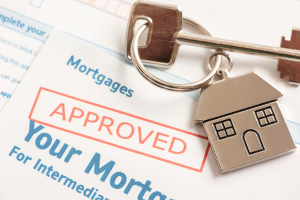Presenting Your Home in the Best Light: A Guide to Cleaning for Showing
 First impressions are crucial, especially when it comes to selling your home. When potential buyers step into your house for a showing, you want them to envision their future there. A clean and well-maintained space can significantly impact their perception of your property. In this blog post, we’ll delve into a comprehensive guide on how to prepare your home for showings, using valuable insights from the website [bleachpraylove.com](https://bleachpraylove.com/how-to-clean-your-house-for-showings/).
First impressions are crucial, especially when it comes to selling your home. When potential buyers step into your house for a showing, you want them to envision their future there. A clean and well-maintained space can significantly impact their perception of your property. In this blog post, we’ll delve into a comprehensive guide on how to prepare your home for showings, using valuable insights from the website [bleachpraylove.com](https://bleachpraylove.com/how-to-clean-your-house-for-showings/).
The Art of Preparing Your Home for Showings:
When it’s time to showcase your home, every detail matters. Bleach Pray Love provides an insightful guide that breaks down the cleaning process into manageable steps:
1. Declutter and Depersonalize:
Before you dive into cleaning, decluttering is a crucial step. Remove personal items, excess decor, and unnecessary furniture. This not only makes your space look more open but also helps potential buyers visualize their own belongings in the house.
2. **Start with the Basics:**
Begin by addressing the basics: dusting, sweeping, and vacuuming. Pay special attention to high-traffic areas and surfaces that tend to collect dust and dirt.
3. Deep Clean the Kitchen:
Kitchens often play a pivotal role in a buyer’s decision-making process. Clean countertops, appliances, and inside cabinets. Ensure that there are no lingering odors and that all surfaces sparkle.
4. Revamp the Bathrooms:
Bathrooms should exude cleanliness and comfort. Scrub tiles, sinks, and bathtubs. Replace worn-out shower curtains and ensure that the bathroom is well-ventilated to prevent any musty smells.
5. Focus on Flooring:
Clean and, if necessary, polish or steam-clean your floors. Carpets should be freshly vacuumed and free from stains.
6. Let There Be Light:
Maximize natural light by opening curtains and blinds. Additionally, ensure all light fixtures and bulbs are functioning. A well-lit home feels inviting and spacious.
7. The Power of Details:
Don’t overlook small details that can make a big difference. Wipe down doorknobs, faucets, and switch plates. Arrange fresh flowers or plants as a welcoming touch.
8. Outdoor Appeal:
Curb appeal matters as much as the interior. Trim the lawn, prune bushes, and clean up outdoor spaces. A well-maintained exterior sets a positive tone for the entire showing.
Expert Tips from Bleach Pray Love:
The website offers some valuable expert advice to enhance your showing preparations:
– Use eco-friendly cleaning products to ensure a fresh and non-toxic environment.
– Enlist a friend’s help to spot any areas you might have missed.
– Consider professional cleaning services for a thorough and efficient clean-up.
– Maintain the cleanliness throughout the showing period to accommodate last-minute requests.
Conclusion:
When it comes to selling your home, creating a clean and inviting space is a critical aspect of making a positive impression on potential buyers. By following the steps and expert advice from [bleachpraylove.com](https://bleachpraylove.com/how-to-clean-your-house-for-showings/), you can ensure that your home is presented in the best possible light, maximizing its appeal and increasing the chances of a successful sale. Remember, a little effort in cleaning can go a long way in securing a favorable outcome.


 Facebook
Facebook
 X
X
 Pinterest
Pinterest
 Copy Link
Copy Link




 As the dog days of summer roll in, August provides homeowners with a golden opportunity to perform essential maintenance tasks that will safeguard their property and prepare it for the upcoming seasons. Whether you’re a seasoned homeowner or new to the responsibilities of maintaining a house, this blog post will serve as your go-to guide for tackling crucial tasks this August. By taking proactive steps, you can ensure your home remains in excellent condition and save yourself from potential headaches down the road.
As the dog days of summer roll in, August provides homeowners with a golden opportunity to perform essential maintenance tasks that will safeguard their property and prepare it for the upcoming seasons. Whether you’re a seasoned homeowner or new to the responsibilities of maintaining a house, this blog post will serve as your go-to guide for tackling crucial tasks this August. By taking proactive steps, you can ensure your home remains in excellent condition and save yourself from potential headaches down the road.


 When it comes to designating a room as a bedroom, there are certain legal requirements that must be met to ensure the safety, comfort, and habitability of the space. These requirements vary from jurisdiction to jurisdiction, but there are some common criteria that are often considered in determining whether a room can be legally called a bedroom. In this blog post, we will explore these criteria and provide you with a comprehensive understanding of what is legally required to call a bedroom a bedroom.
When it comes to designating a room as a bedroom, there are certain legal requirements that must be met to ensure the safety, comfort, and habitability of the space. These requirements vary from jurisdiction to jurisdiction, but there are some common criteria that are often considered in determining whether a room can be legally called a bedroom. In this blog post, we will explore these criteria and provide you with a comprehensive understanding of what is legally required to call a bedroom a bedroom.

